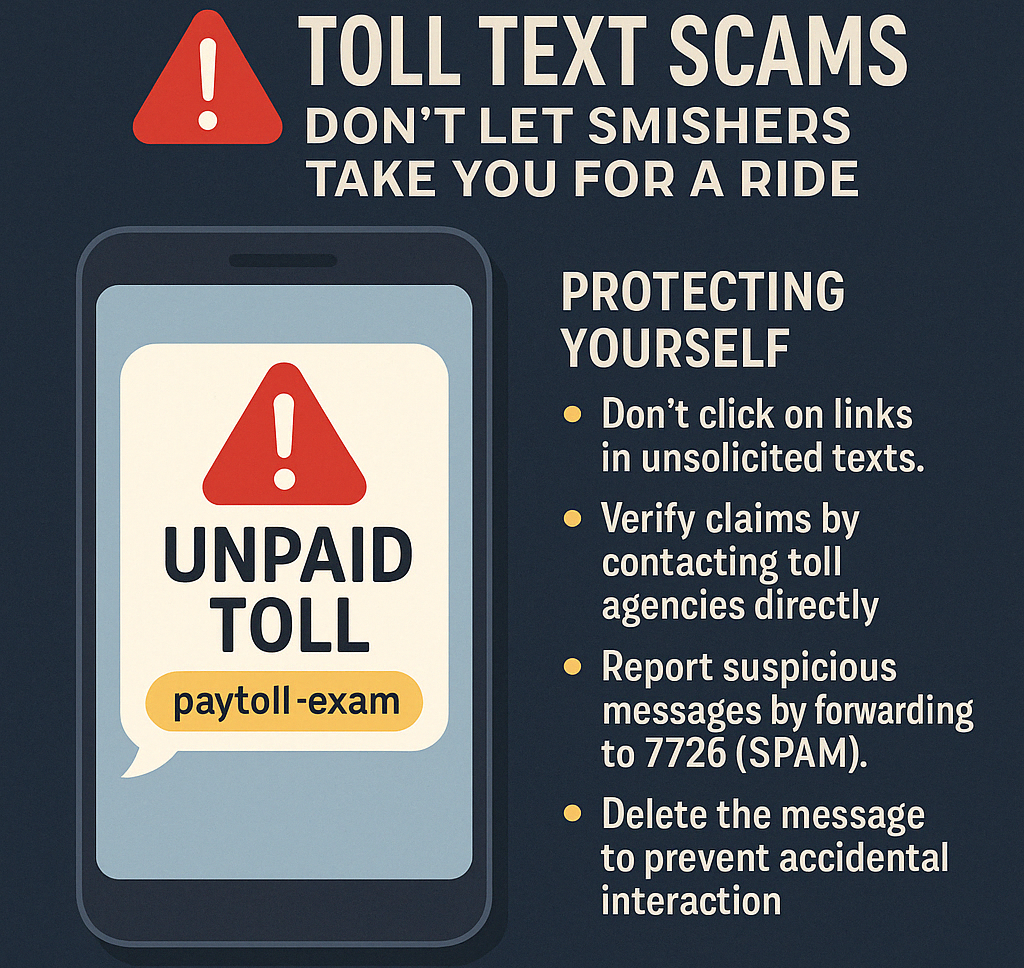Imagine receiving a text alerting you to unpaid tolls, urging immediate payment to avoid penalties. Sounds urgent, right? But here’s the catch: it’s likely a scam!
The Rise of Toll Text Scams
Across the U.S., scammers are impersonating toll agencies, sending deceptive texts claiming you owe money for unpaid tolls. These messages often include a link directing you to a fraudulent website designed to steal your personal and financial information. This tactic, known as “smishing” (SMS phishing), has become increasingly prevalent. The FBI reported receiving over 2,000 complaints about such scams in just one month.
Why These Scams Are Effective
Smishing scams exploit urgency and familiarity.
By mimicking legitimate toll agencies and creating a sense of immediate consequence, they prompt quick reactions. Some messages even tailor content based on your location, enhancing their credibility. For instance, drivers in Arizona—a state without toll roads—have reported receiving these fraudulent texts, causing confusion and concern.
Protecting Yourself
To safeguard against these scams:
- Don’t click on links on unsolicited texts
- Verify claims by contacting toll agencies directly through official channels
- Report suspicious messages by forwarding them to 7726 (SPAM)
- Delete the message to prevent accidental interaction
- Remember, legitimate toll agencies typically communicate via mail and will not request payments through unsolicited texts. But note — contact the agency through their official website or call center to confirm if you have any concerns of the legitimacy of the message.
Final Thoughts
In the digital age, staying informed and vigilant is your best defense against scam. Always verify unexpected communications and think twice before clicking on unfamiliar links. Your caution can prevent potential financial and personal information loss.
Stay safe and informed.



